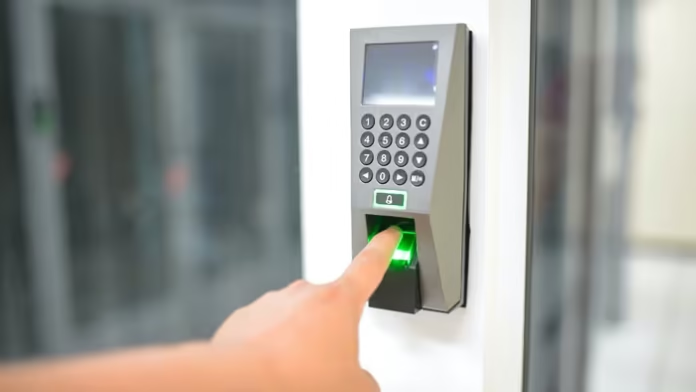The Tripura government is introducing a biometric attendance system in tribal hostels. The initiative, spearheaded by the state’s Tribal Welfare Department, aims to streamline the attendance process, ensure accountability, and improve the overall management of tribal hostels across the state.
The biometric system, set to be rolled out in all government-run tribal hostels, will replace traditional manual attendance methods, which have often been prone to errors and inefficiencies. With this upgrade, students residing in these hostels will now have their attendance recorded through biometric identification, making the process quicker, more accurate, and secure.
The Tribal Welfare Department emphasized that the introduction of this system will play a pivotal role in ensuring that students’ attendance is accurately tracked, minimizing absenteeism and improving overall hostel management. The system will also provide valuable data to hostel authorities, allowing them to monitor student attendance patterns and intervene when necessary.
Speaking about the new system, a senior official from the Tribal Welfare Department said that the biometric attendance initiative reflects the government’s commitment to modernizing the education system and improving the living conditions of tribal students. The official noted that with accurate attendance data, hostel authorities would be better equipped to address issues related to student welfare and academic progress.
The biometric attendance system is just one component of a broader initiative aimed at modernizing tribal hostels and enhancing the educational experience for students. In addition to the attendance system, the Tripura government is introducing smart classes and digital libraries in these hostels. These upgrades will significantly improve the quality of education provided to students, ensuring they have access to modern learning tools and resources.
Smart classrooms, equipped with the latest technology, will offer an interactive learning experience that combines traditional teaching with digital media. These classrooms will allow students to engage with multimedia content, enhancing their understanding of complex subjects and providing them with a more engaging and dynamic educational experience. The digital libraries, on the other hand, will give students access to a vast array of e-books, research papers, and online educational resources, further enhancing their learning opportunities.
The government’s focus on improving the infrastructure of tribal hostels aligns with its broader vision of providing quality education and fostering the overall development of tribal communities. By integrating technology into the learning process, the state is ensuring that tribal students have access to the same educational tools as their peers in more urban areas.
Local tribal leaders and educational advocates have welcomed the initiative, praising the government for its efforts to improve the educational environment in tribal areas. They believe that these reforms will not only enhance academic performance but also empower tribal students with the skills and knowledge necessary to succeed in a rapidly evolving world.
The implementation of biometric attendance, smart classes, and digital libraries also aligns with the state’s goal of bridging the digital divide and promoting digital literacy among tribal students. As the government continues to invest in these infrastructure upgrades, it is expected that these improvements will lead to better educational outcomes and an increase in the number of tribal students completing their education and entering the workforce.
With these technological advancements, Tripura is positioning itself as a state committed to the holistic development of its tribal communities. The biometric attendance system, along with the introduction of smart classes and digital libraries, marks a significant step forward in improving the education and living conditions of tribal students.
The Tripura government plans to expand these upgrades to more hostels in the coming years, ensuring that every tribal student in the state benefits from these innovations. As the project progresses, officials expect to see improved academic performance, better student engagement, and a greater sense of accountability in tribal hostels across Tripura.
This initiative reflects the government’s ongoing efforts to make education more accessible, transparent, and modern for all students in the state, ensuring that no one is left behind in the pursuit of knowledge and success.
Refer here for more such articles:




